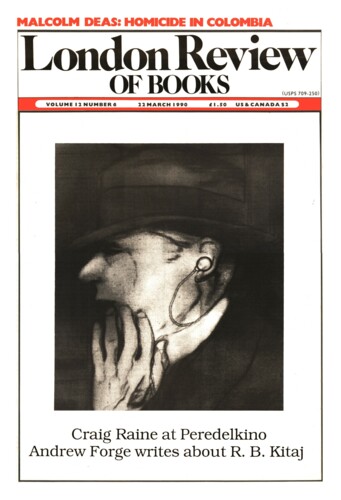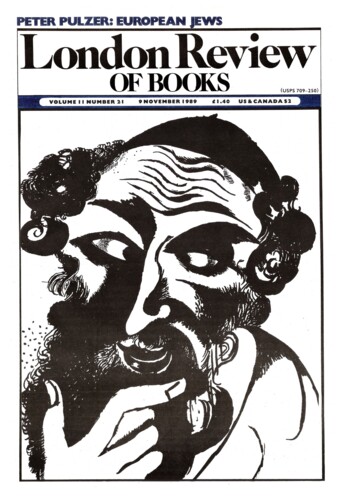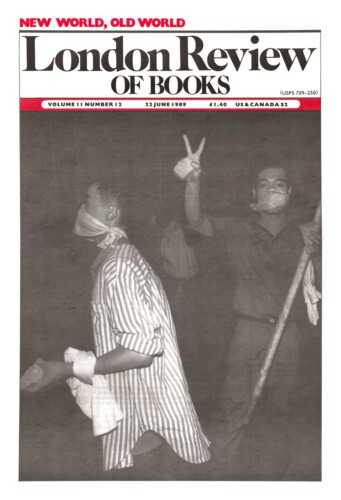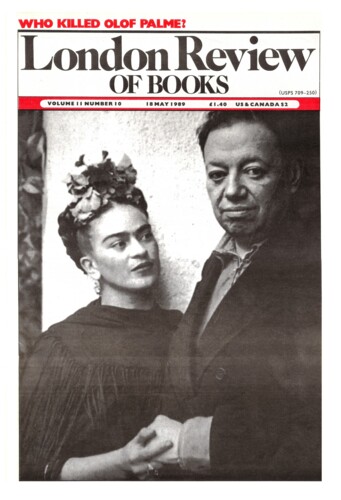Uncle Kingsley
Patrick Parrinder, 22 March 1990
The folks that live on the hill? It’s not exactly what you’d expect of a Kingsley Amis title, but in another two years the old devil will be 70 and perhaps he is beginning to mellow. John McDermott remarks in his appealing study of Amis’s novels that the hero-as-shit, at large in a world of mutual animosity and obsessive self-interest, is one of their most characteristic figures. In The folks that live on the hill the hero-as-shit has given way to the hero-as-patriarch. Harry Caldecote, a retired librarian, heads an extended family of the weak, the lost and the habitually drunk who constantly turn to him for assistance. Harry feels mysteriously responsible for his tribe of feckless relatives. Outside his family, he is fondly regarded by the shopkeepers, bartenders and minicab drivers of Shepherd’s Hill, his chosen patch of North London. Folksiness in Amis’s new novel is only intermittently an object of satire.





